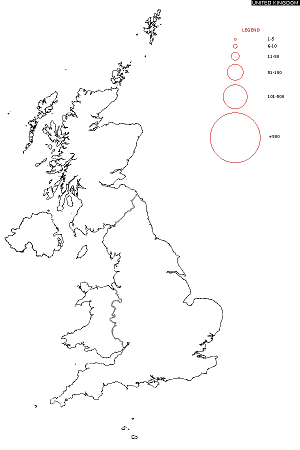
Definition of Surname
A surname, also referred to as a family name or last name, is a hereditary name passed down from one generation to another and serves to identify the family to which an individual belongs. In contemporary usage, surnames are placed after the given name, although historically, the order and application of surnames have varied across cultures and regions. Surnames are not merely identifiers; they carry social, cultural, and historical significance, often reflecting lineage, occupation, geographic origin, or personal traits. In the United Kingdom, the use of surnames became increasingly standardised from the Middle Ages, providing a method to distinguish between individuals as populations grew.
Surnames often originate from four primary sources:
- Patronymic or matronymic names: Derived from the given name of a father, mother, or ancestor, such as Johnson (son of John) or Richardson (son of Richard).
- Occupational names: Based on the profession of the individual or their ancestor, such as Smith, Baker, or Carpenter.
- Toponymic names: Originating from a geographic location, such as Hill, Wood, or London, which indicate where a person or family lived.
- Descriptive or nickname-based names: Reflecting personal characteristics, physical appearance, or temperament, such as Short, Brown, Armstrong, or Wise.
History of Surnames in the United Kingdom
The use of surnames in the United Kingdom developed gradually over centuries, influenced by social, legal, and cultural factors. In early medieval England, most individuals were known only by a given name. However, as communities expanded and populations grew, it became increasingly necessary to distinguish between individuals who shared the same first name. The introduction of hereditary surnames helped meet this need.
The earliest records of surnames in the UK date back to the 11th century, around the time of the Norman Conquest in 1066. The Normans brought with them the practice of using inherited family names, which quickly spread among the nobility and gradually into the wider population. Initially, these names were not always fixed; they could change from one generation to another, often reflecting the father’s occupation, property, or a distinguishing personal characteristic. For example, an individual known as Robert le Smith might have a son who would later be recorded as John Smith, solidifying the surname across generations.
By the 13th and 14th centuries, the adoption of surnames became more common among the general population, partly driven by administrative needs such as taxation, legal documents, and land ownership records. Parish registers, legal rolls, and tax lists began to record both given names and surnames, reinforcing their hereditary nature. The surname system also became a tool of social organisation, as it allowed communities to track property inheritance, lineage, and social connections.
Surnames in the UK often reflect a rich tapestry of linguistic and cultural influences, including Old English, Norman French, Celtic, and Scandinavian elements. For instance, surnames such as Thompson or Williamson indicate patronymic origins, while names like Taylor or Fletcher denote occupations. Toponymic surnames like York or Lancaster point to geographic roots, and descriptive surnames like Blackwood or Fairchild provide insights into physical appearance or personal traits.
The spelling of surnames was not standardised until relatively recently. Early records often show multiple variations of the same surname, reflecting local dialects, literacy levels, and the phonetic interpretation of clerks recording names. For example, the surname “Clarke” might appear as “Clark” or “Clerk” in different documents, though they refer to the same family lineage. Standardised spelling gradually emerged with the advent of official record-keeping, census registration, and the increased use of written legal documents.
By the 16th and 17th centuries, surnames had become firmly established as a hereditary component of identity. Laws and parish regulations reinforced the use of surnames in official records, including births, marriages, and deaths. The proliferation of surnames also coincided with broader social changes, including urbanisation, migration, and the growth of commerce, all of which increased the need for clear identification.
Today, surnames in the United Kingdom continue to carry historical significance and cultural heritage. They connect individuals to ancestral roots, familial lineage, and regional identities. While naming conventions have evolved, the surname remains a core aspect of personal identity, used in legal documents, social interactions, and genealogical research. Modern practices also reflect social changes; for instance, individuals may adopt hyphenated surnames, combine surnames upon marriage, or change surnames for personal reasons, while children traditionally inherit the father’s surname, though alternative conventions are increasingly recognised.
In conclusion, surnames are more than mere labels; they are historical artefacts that encapsulate centuries of social evolution, migration, and cultural identity. From their origins in medieval England and the Norman influence, through occupational, locational, and patronymic derivations, to their modern use as markers of family and heritage, surnames provide a window into the past and a framework for understanding lineage and identity in the United Kingdom.
| Share on WhatsApp |